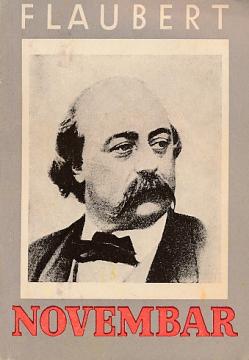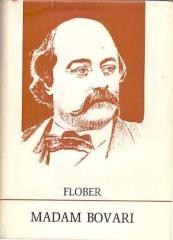
Novembar
November (1842) ist ein frühes Werk von Gustave Flaubert, das als sein erster vollendeter Roman gilt. Obwohl weniger bekannt als Madame Bovary, ist dieses Werk wichtig, da es Flauberts frühe literarische Themen, seinen Stil und seine philosophischen Anlie
Der Roman ist teilweise autobiografisch und erforscht die inneren Konflikte, romantischen Ideale und die existenzielle Traurigkeit eines jungen Mannes. Die Geschichte folgt dem namenlosen Erzähler, einem jungen Mann, der mit Gefühlen der Entfremdung und der Sehnsucht nach unerreichbaren Idealen kämpft.
Der Roman beginnt mit introspektiven Betrachtungen über Leben, Liebe und Vergänglichkeit. Der Erzähler beschreibt seine Kindheit, Jugend und seine ersten Begegnungen mit der Liebe, die starke, aber widersprüchliche Gefühle in ihm wecken. Der Schlüsselmoment ist seine Begegnung mit Mari, einer Prostituierten, die zum Symbol seiner romantischen und sinnlichen Sehnsüchte wird. Diese Beziehung bleibt jedoch unerfüllt und verstärkt sein Gefühl der Leere und Ohnmacht angesichts des Lebens.
In „November“ verbindet Flaubert gekonnt lyrische Prosa mit philosophischen Betrachtungen und behandelt Themen wie die Diskrepanz zwischen Traum und Wirklichkeit, den Lauf der Zeit und die Unmöglichkeit wahren Glücks. Die Selbstbeobachtung des Erzählers verwandelt sich oft in melancholische Meditationen über den Sinn des Lebens, was den Einfluss der Romantik widerspiegelt, aber auch Flauberts späteren Realismus vorwegnimmt. Der Stil ist reichhaltig, fast poetisch, mit einem Schwerpunkt auf der inneren Welt der Figur.
Das Werk endet tragisch mit der endgültigen Desillusionierung des Erzählers in Bezug auf Liebe und Leben, was Flauberts Besessenheit von der Tragik der menschlichen Existenz unterstreicht. „November“ ist ein Schlüsselwerk für das Verständnis von Flauberts literarischer Entwicklung, da es seine Fähigkeit demonstriert, emotionale Tiefe mit analytischer Schärfe zu verbinden.
Angeboten wird ein Exemplar





